Tandon Faculty First Look Scholars
Meet the 2025 cohort

Annatoma Arif
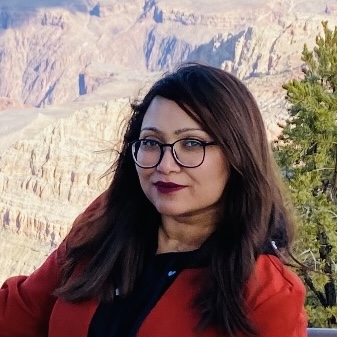
Postdoctoral Fellow at Stanford University
Annatoma Arif grew up in Bangladesh, a Southeast Asian country that has made significant progress towards gender equality in recent decades but where traditional notions of a woman’s place in society still hold sway.
Luckily, she says, her family was supportive of her; her mother had never gotten the chance to earn a degree or have a career, and she was particularly eager for Arif to chase her goals. From an early age, those goals had included becoming a teacher; by the age of 10, she was known as a willing tutor for anyone in the neighborhood needing help with schoolwork.
Deciding to focus on STEM was a natural decision. As an early talker, she relentlessly quizzed her parents about the world around her: How does the car’s defroster work? If snow and ice are both frozen water, why do they look different? “I was really interested in learning how the world works,” she recalls.
With her strong commitment and passion, she enrolled at Ahsanullah University of Science and Technology, in Dhaka, to study electrical engineering, and while there were other women in her undergraduate cohort, she was often the only one to pepper her professors with deep thought provoking questions during classes. “That was definitely not common in our culture, so I probably annoyed many people,” Arif admits.
After she earned her bachelor’s degree in 2013, Arif set her sights on earning a master’s abroad. Her family’s support had its limits, however, and it was against their wishes that she traveled to Ohio to study at Miami University, becoming the first among her family and friends to come to the U.S.
With her master’s studies completed, Arif felt ready to return to Bangladesh and start her career as a teacher in her field. Meanwhile, she got married and started a family. However, her relentless pursuit of knowledge only added to her restlessness. Once her son was a toddler, the pull back to academia was strong, and with her husband’s encouragement, she began studying for a Ph.D. at University of Texas at El Paso. Working with Assistant Professor of Electrical and Computer Engineering Robert C. Roberts, she became deeply interested in the possibilities of fabricating microsystems using 3D printing. “I think of him as my forever mentor,” she says.
Arif was lucky to find yet another dedicated mentor in her current role as a postdoctoral fellow at Stanford. There she works in the lab of Professor Sindy Tang to develop a 3D printed microsystem for the dissection of single cells from thin tissue samples for deep and unbiased profiling of the proteome (method of the year 2024 – nature methods) for the discovery of novel biomarkers and therapeutic targets.
Now focused on applying her additive manufacturing research to a variety of pressing problems in healthcare and sustainability, she remains just as intent on understanding how the world works, and just as passionate about teaching as she was at the age of 10.
Marwa Atwa
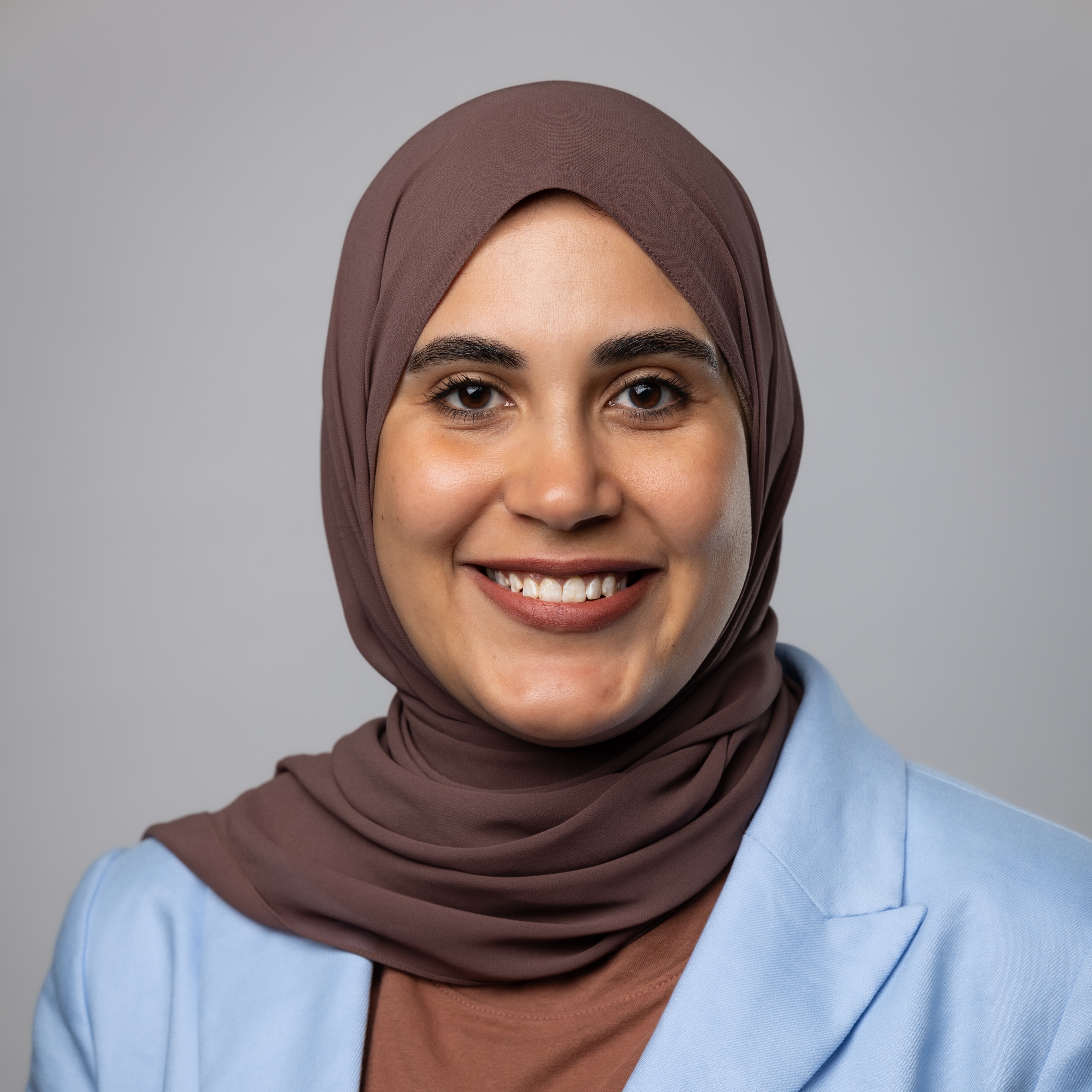
Postdoctoral Researcher at Stanford University
Marwa Atwa’s older sibling sometimes teases her about a habit she had growing up in Egypt; whenever a lightbulb in the family home required changing, she collected the burnt-out bulb to look at the filaments and try to figure out how electricity was generated. She delighted in being sent to the store for replacements, fascinated by the variety. Why did some give off brighter light, and why did some last longer than others, she wondered.
Fast forward a few decades, and Atwa is a postdoctoral researcher at Stanford University and SLAC National Accelerator Laboratory, where she focuses on developing and characterizing durable electrodes in energy devices (e.g., hydrogen fuel cells, and water and carbon dioxide electrolyzers). Her ultimate goal is to advance climate technology and decarbonization, particularly by discovering innovative methods for carbon capture and conversion. This process typically involves capturing CO₂ from industrial activities such as steel and cement production and converting it into green fuels and chemicals.
Before arriving at Stanford, Atwa earned her undergraduate and master’s degrees in chemistry from Suez Canal University, where she focused on developing nanoengineered coatings that could prevent steel from corroding, and she completed her doctoral studies at the University of Calgary, working with Professor Viola Birss on the development of new catalysts for fuel cell applications. During those years, she also became interested in understanding what factors lead to the degradation of fuel cell performance. “Understanding that well is a major step to figuring out ways to slow or halt the degradation,” she says.
Atwa was faced with a special challenge when she embarked upon her Ph.D. studies; she was already the mother of a young child. (She now has two.) “Balancing family life with ambitious scientific goals was demanding,” she recalls, “but it also became a powerful source of motivation.”
Recalling how much she loved science as a youngster and the wonderful teachers who nurtured her interest, she is determined to do the same not just for her own children but for generations of future scientists and engineers. She participates in outreach whenever she’s offered the opportunity, at elementary schools, science fairs, and even malls.
"My passion for teaching has fueled my drive as a lifelong learner,” she says. I’m eager to expand my expertise into new fields like AI and Synchrotron research — so that one day, I can teach them all!"
Mitra Cattry
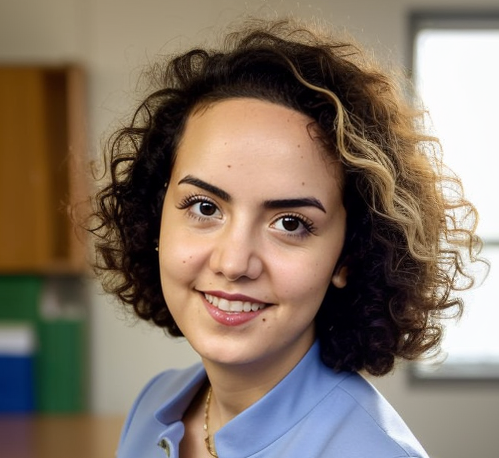
Postdoctoral Research Scientist in Earth and Environmental Engineering at Columbia University
Mitra Cattry has always been drawn to the interplay between water, carbon, and life. Though she began her academic journey in petroleum engineering, a growing awareness of environmental challenges led her to eco-hydrology and machine learning. When oil prices dropped in 2014, she shifted her focus to carbon sequestration, but she soon found that nature-based solutions offered a more promising path for sustainability.
Mitra earned a Ph.D. from EPFL (École Polytechnique Fédérale de Lausanne), where she studied fluid flow in porous media within the context of ecohydrology — a field that resonated deeply with her. Now, at Columbia University’s Gentine Lab, she studies how semi-arid ecosystems respond to climate variability. Using AI, flux tower data, and satellite observations, she explores how water availability shapes vegetation productivity and drought resilience, with the goal of improving Earth System Models (ESMs).
Her impressive academic journey has been shaped by both challenges and opportunities. Early on, she excelled in math and science, influenced by her mother’s passion for mathematics. Moving through highly competitive STEM environments, she encountered both mentorship and self-doubt, but each step reinforced the importance of persistence, adaptability, and a supportive academic community.
She is grateful that at both Delft University of Technology, where she earned her master’s degree, and EPFL, she benefited from mentors, university resources, and professional networks that helped her grow both technically and personally. Columbia, as well, has proven to be a dynamic academic environment that fosters rigor and resilience.
The Faculty First Look program at NYU Tandon provided a valuable opportunity to connect with faculty, deans, and peers who exemplify strong academic leadership. “As I prepare for the next step in my career, I look forward to building meaningful collaborations and contributing to innovative climate solutions through AI and environmental modeling,” she says.
Lisa Je
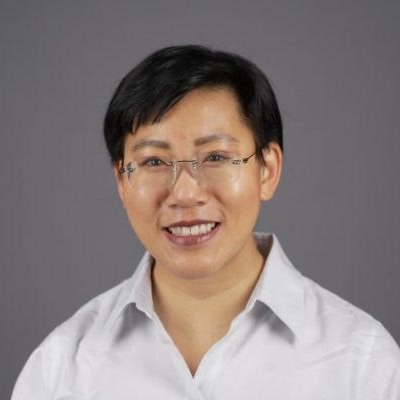
Ph.D. candidate at the University of Wisconsin-Madison
As a Ph.D. candidate at the University of Wisconsin-Madison, Lisa Je combines molecular dynamics and topological data analysis to create simulations that could speed the development of novel materials. Their specific goal is to design more cost-effective, efficient, and sustainable batteries.
Je has long been interested in that topic. They were just a child when a widespread power outage hit parts of the Northeast in 2003, plunging New York City into darkness.”I was excited to get stranded on the subway and to walk down the tracks to be evacuated,” they say, “and it was great raiding the refrigerator before all our food could spoil. But the batteries in our flashlights kept dying every few hours, and I remember thinking there had to be a better way.”
At Vassar and Dartmouth’s dual degree program, they focused on chemistry and engineering – interests that had been piqued by waging a successful battle against an infestation of bugs in their family’s Brooklyn apartment. After earning two undergraduate degrees in chemistry and engineering respectively, they headed to the University of Wisconsin-Madison for a master’s and PhD program in Chemical Engineering.
There, as a doctoral student, National Science Foundation Graduate Research Fellow, and Edward Alexander Bouchet Graduate Honor Society member, they are doing fundamental work to create designer electrolytes for electrochemical storage applications. “Batteries are vital to so many sectors, including transportation and healthcare,” they explain, “so my research has the potential to make a broad, positive impact.”
As a first-generation chemical engineer, they also hope to make a positive impact on others who might not feel there is a place in STEM for them. To that end, they currently serve on the American Institute of Chemical Engineers LGBTQ+ planning committee and feel strongly about serving as a role model and mentor to their students. “Visibility matters,” they say. “My presence in a lab sends a signal that a research career can be for anyone.”
Eduardo Ortega
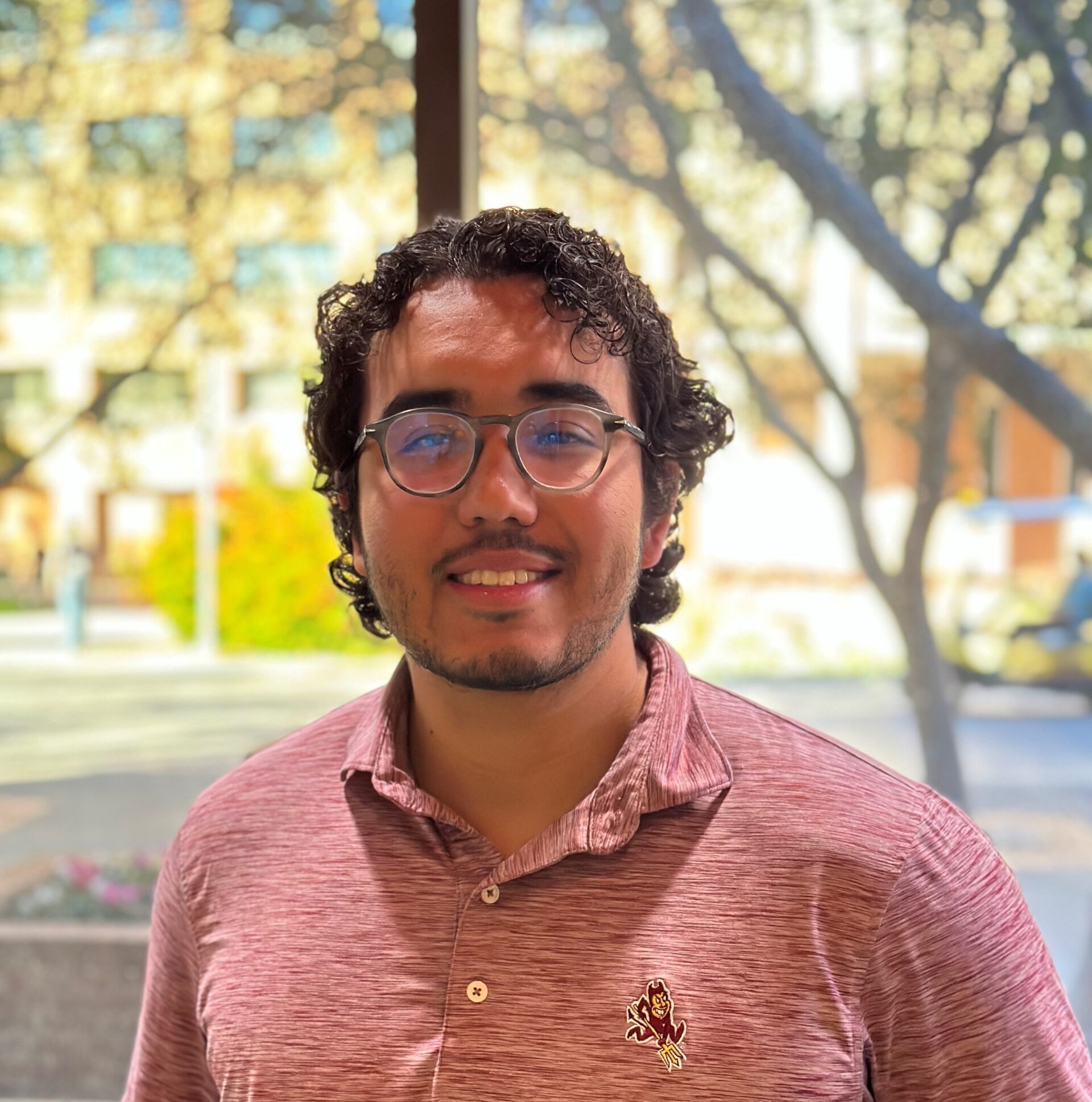 Ph.D. Candidate at Arizona State University
Ph.D. Candidate at Arizona State University
If you’re going to build a two-ton steel dodecahedron covered in more than 17,000 LEDs, it helps to have an electrical engineer on-hand. As an undergraduate at the University of San Diego’s Shiley-Marcos School of Engineering, Eduardo Ortega was one of a large group of volunteers who helped create that structure, Unfolding Humanity, a massive, multidisciplinary art installation aimed at exploring the tensions between technology and humankind.
Now a Ph.D. candidate at Arizona State University’s Ira A. Fulton Schools of Engineering, he still loves art but admits that free time to participate in such projects is in exceptionally short supply.
Ortega – who majored in Integrated engineering with a concentration in embedded software while minoring in mathematics and leadership studies – earned a combined B.A. and B.S. in 2020 and has been conducting research in Arizona State’s Center for Semiconductor Microelectronics under Professor Krishnendu Chakrabarty since 2023. (He had begun his graduate studies at Duke University’s Pratt School of Engineering in 2021, also under Chakrabarty, but when his mentor switched institutions, he made the move as well.).
Ortega’s CV includes a co-op at Intel, a stint as an associate test engineer at the Insulet Corporation, and a technical internship at Synopsys, and most recently, he returned to Intel as a 3D-IC System Technology Co-Optimization Physical Design Intern, working to create a framework to automate thousands of IR simulations and building a machine learning model for the design of power delivery networks.
Given his focus on hardware security and edge machine learning applications, his industry experience has borne fruit: in 2023, for example, the Semiconductor Research Corporation (SRC) honored him for his paper “Simply-Track-And-Refresh: Efficient and Scalable Rowhammer Mitigation,” which detailed a new method of dealing with rowhammer attacks, when hackers corrupt data in dynamic random-access memory (DRAM) cells.
More recently, in collaboration with Intel, he helped create a hardware and software co-design framework for safety and security throughout the silicon lifecycle. Called E-SCOUT (Efficient-Spatial Clustering-based Outlier Detection through Telemetry), the framework recognizes that ensuring silicon-product reliability and quality requires careful management and monitoring and provides a way to do that using performance counters and sensors.
Ortega’s overarching goal is to join academia and help establish a research lab focusing on scalable and reliable compute systems. His passion for building opportunity between academia and industry has led him to have an open mind. Ortega, who was named an ASU 2023 Fulton Fellow asserts, “The important thing is to do good, solid research, in whatever setting you’re in . . . and because I’ve had wonderful mentors, both in the lab and through the Society of Hispanic Professional Engineers, I’ll be seeking out opportunities to mentor, wherever I am.”
Olawale Salaudeen
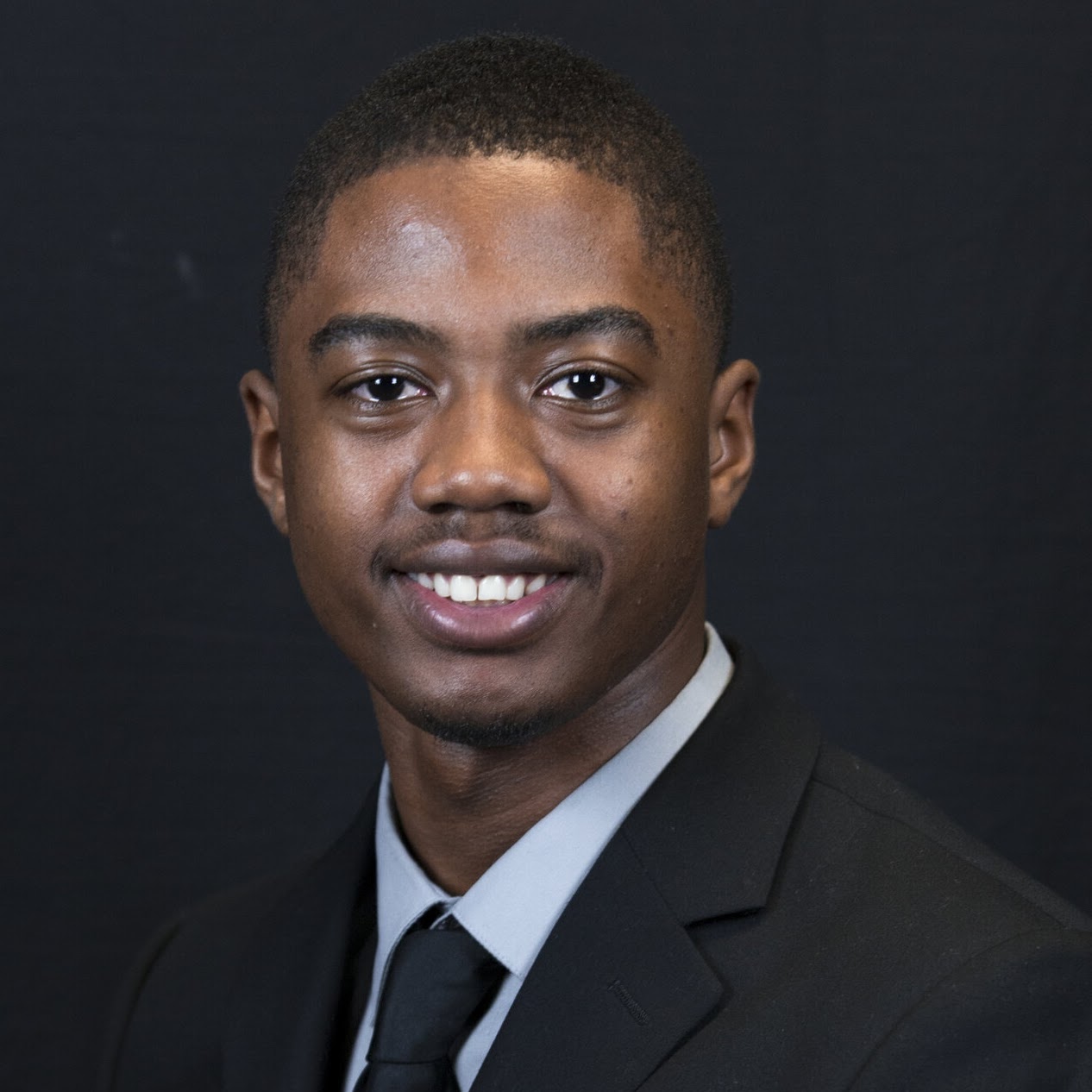
Postdoctoral Associate at MIT’s Laboratory for Information and Decision Systems (LIDS)
Olawale Salaudeen is a postdoctoral associate at MIT’s Laboratory for Information and Decision Systems (LIDS) in the Department of Electrical Engineering and Computer Science. He moved to the U.S. from Nigeria at age 8 and grew up in the Dallas-Fort Worth area, where he developed an early interest in STEM through curiosity-driven projects at home. He deepened this interest by taking AP courses and competing in Texas’ University Interscholastic League (UIL) math and science competitions while also pursuing sports (basketball and water polo) and the arts (as a percussionist).
Salaudeen earned a Mechanical Engineering degree from Texas A&M, with minors in Computer Science and Mathematics, conducting undergraduate research primarily on controls and motion planning for robotic systems. He later transitioned to computer science for graduate school, beginning his doctoral research in the Department of Computer Science at the University of Illinois Urbana-Champaign. He also spent time at Stanford University to continue working with his PhD advisor on the principles and practices of trustworthy and reliable AI systems for social and societal good.
His research focuses on improving the robustness of artificial intelligence (AI) for real-world decision-making. He studies AI performance under distribution shifts — examining challenges in generalization, adaptation, and evaluation — as well as broader questions about effective AI/ML evaluation norms and practices. His work has applications in biological imaging, algorithmic fairness, healthcare, and AI policy.
Salaudeen’s contributions have been recognized through several fellowships and honors, including the GEM Associate Fellowship, Alfred P. Sloan Scholarship, Beckman Institute Graduate Research Fellowship, and an NSF Miniature Brain Machinery traineeship. He has also gained research experience through internships at the Max Planck Institute for Intelligent Systems, Cruise LLC, Google DeepMind, and Sandia National Laboratories.
Looking ahead, Salaudeen hopes to build his own research group in academia to further advance the principles and practices of trustworthy and reliable AI systems for social and societal good. “While I have enjoyed my experiences outside of academia, I treasure the opportunity to pursue fundamental and long-term research problems with an explicit focus on benefiting society. I have also been incredibly lucky to have had extraordinary mentors and advisors—especially my PhD and postdoc advisors, as well as my internship mentors. I hope to do the same for others; that’s something I want to prioritize in my career.”
Jesus D. Vasquez Plaza
Postdoctoral fellow at the University of Puerto Rico-Mayaguez
Jesus D. Vasquez Plaza is focused on converter-dominated power system models, microgrid controls, power electronics, and Hardware-in-the-Loop (HIL) experiment and validation – all work aimed at advancing the stability and reliability of renewable energy systems.
Vasquez Plaza grew up in a small Colombian town and earned his undergraduate degree in electrical engineering at the Universidad del Valle before heading to Puerto Rico for graduate studies. It was there, in Mayaguez, that one day he was tasked with showing officials from the U.S. Army Engineer Research and Development Center (ERDC) around the lab where he was conducting doctoral research.
That willingness to be pressed into service as a tour guide paid off well: Vasquez Plaza so impressed the group that he was offered a post as an Oak Ridge Institute for Science and Engineering graduate researcher.
In recent years, Vasquez Plaza – who was inspired to pursue a STEM career by his father, a high school science teacher – has worked on a variety of projects, including designing and implementing simulations that will help determine how best to integrate electric-vehicle charging stations into power grids, and studied ways of enhancing the resiliency of power systems in isolated regions. “Working in Puerto Rico, you get a big-picture idea of how your work is actually impacting the community, not just from a technical standpoint but a social one,” he says.
Puerto Rico’s power grid faces significant challenges due to its exposure to extreme weather events, including hurricanes and tropical storms that often cause widespread damage and disruptions. These conditions highlight the urgent need for more resilient and adaptive energy systems, making the island a critical location for researching distributed energy resources (DERs), microgrids, and grid modernization. Vasquez Plaza’s work aligns with these efforts, focusing on strategies to improve power system stability and integrate renewable energy solutions effectively.
He has also spent much of his time supervising projects, providing guidance to graduate and undergraduate students, and fostering a collaborative academic culture. It’s gratifying, he says, to introduce aspiring researchers to new methodologies and help them build a strong foundation for future contributions.
His own future contributions, he hopes, will be made in one of the Department of Energy’s national labs. “That would be the dream job,” he explains.
Zihan Zhang
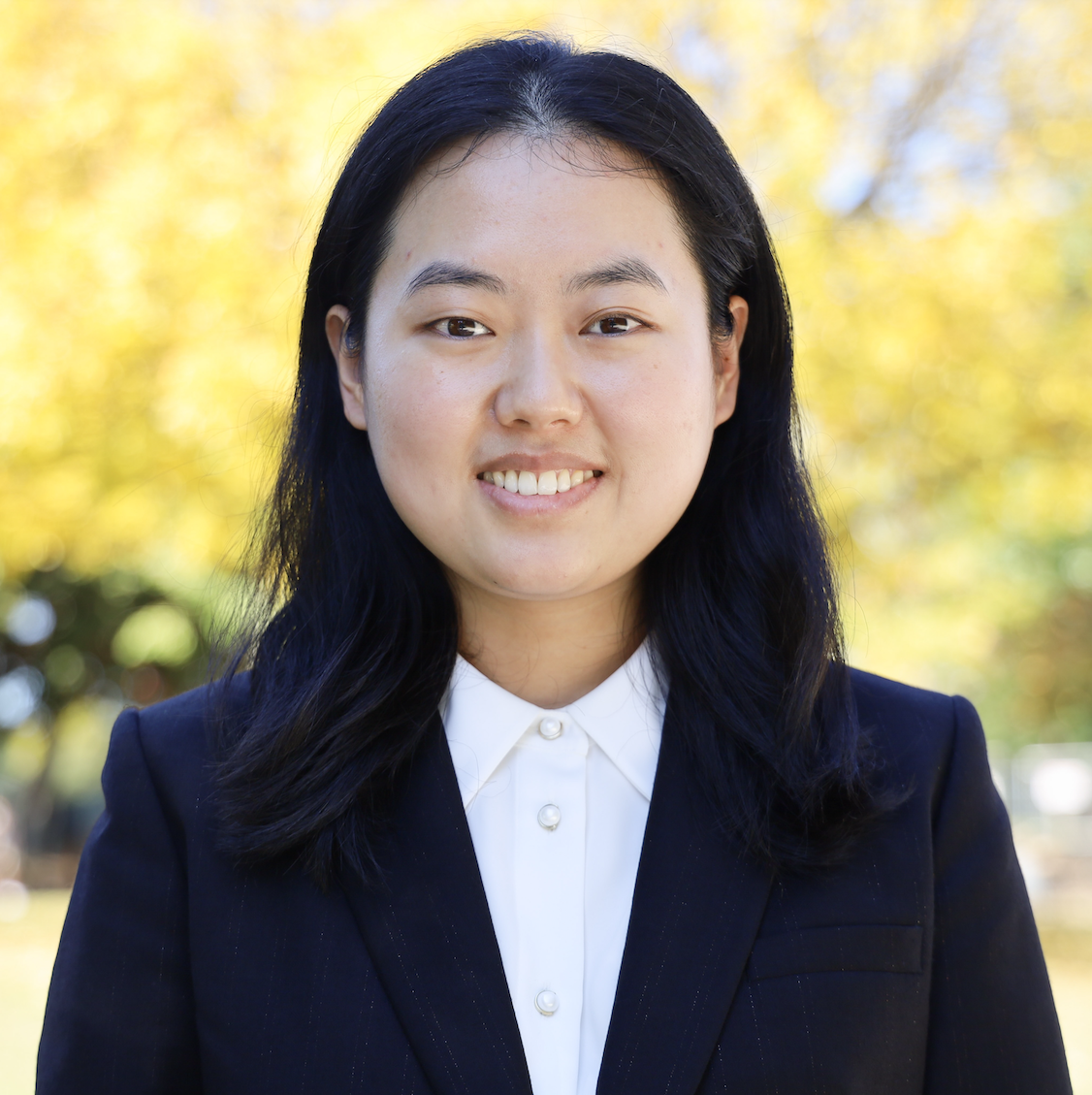
Ph.D. candidate in the H. Milton Stewart School of Industrial and Systems Engineering at Georgia Tech
For as long as she can remember, Zihan Zhang has aspired to earn a college degree, study abroad, and broaden her horizons. Although her parents did not attend college themselves, they wholeheartedly supported her ambitions. When she decided to leave her native China to pursue a master’s degree at the University of Toronto, they encouraged her every step of the way.
Now a Ph.D. candidate in the H. Milton Stewart School of Industrial and Systems Engineering at Georgia Tech, Zhang is making valuable contributions to her field. Her research focuses on tensor-based modeling, analysis, and control for high-dimensional streaming data. She has published extensively, and her work has earned prestigious accolades, including paper awards from INFORMS (Institute for Operations Research and the Management Sciences) QSR (Quality, Statistics, and Reliability Section), and ASA (American Statistical Association) SPES+QP (Sections on Physical and Engineering Sciences and Quality and Productivity). In addition, she has received fellowships and scholarships from organizations such as INFORMS, IISE (Institute of Industrial and Systems Engineers), ASQ (American Society for Quality), ISA (International Society of Automation), the George Family Foundation, and the Novelis Innovation Hub, along with travel grants from ASA and SIAM (Society for Industrial and Applied Mathematics).
Beyond her research, Zhang is dedicated to supporting and uplifting her peers. An active member of INFORMS, she has held multiple leadership roles, including serving as president of Georgia Tech’s student chapter, where she led the team to win the Summa Cum Laude (the highest distinction) Annual Chapter Award. She has also contributed as a co-lead editor for OR/MS Tomorrow magazine and currently serves as the co-chair of the Education Outreach Committee K-12 Subcommittee, as well as a student liaison for Women in Operations Research and Management Science.
Since 2023, Zhang has spearheaded a panel series at the INFORMS Annual Meeting, focusing on enhancing K-12 education and promoting STEM outreach. Her dedication has not gone unnoticed. At the 2024 INFORMS Annual Meeting, she was honored with the Judith Liebman Award, which recognizes students for their exceptional commitment and contributions to their academic and professional communities.
Adding to her growing list of achievements, Zhang was recently named an NYU Faculty First Look Fellow — an opportunity she eagerly embraces. “This will be my first time visiting New York City, and I’m excited to learn from the NYU professors who are dedicating their time to us,” she says. “I deeply appreciate their efforts and hope that one day, I’ll have the chance to do something similar for aspiring industrial engineers.”

